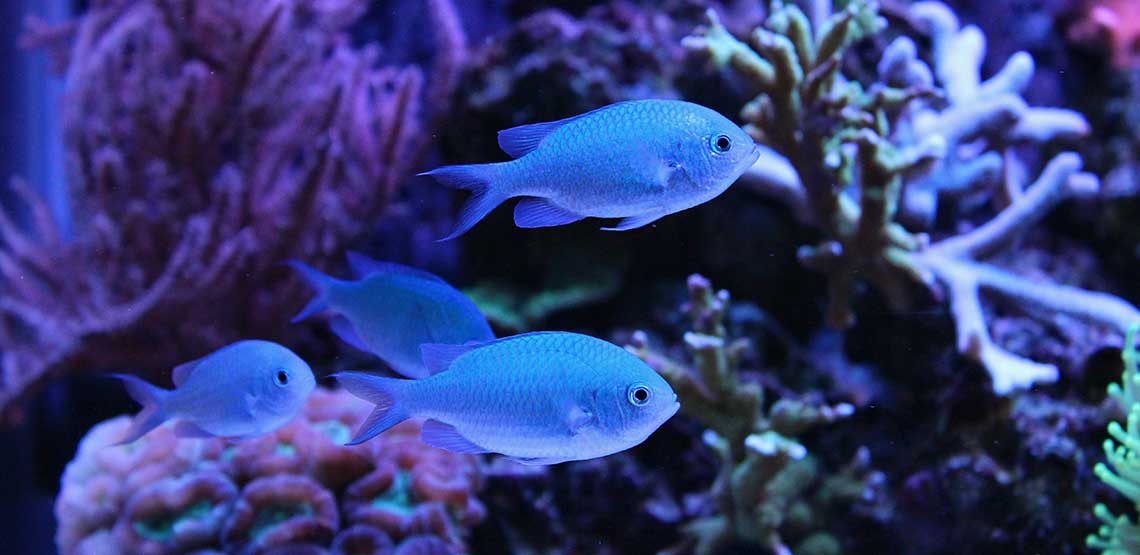How to Take Care of a Fish
Proper fish care involves a delicate balance of a wide variety of factors, including water cleanliness, tank temperature, the water's pH level, aquarium placement, pumping systems, filtration systems and salinity levels (if you have saltwater fish). You also need to be aware that there are suitable and unsuitable combinations of fish for cohabitation of the same aquarium. Aggressive species should not be matched with docile, slow-swimming species; also, some saltwater fish can tolerate higher or lower salinity levels than others.
Additionally, some pet fish species cannot tolerate water pollutants, and these fish make poor tank mates for species with high waste outputs. If you're going to be mixing and matching differing species in the same aquarium, talk to a knowledgeable employee at your local aquarium hobby shop first.
General Aquarium Care for Freshwater and Saltwater Fish
First, never place your aquarium in the path of direct sunlight – it will alter the water temperature. Second, keep in mind that aquariums are very heavy. You'll need a sturdy table to hold it safely; as an alternative, you might want to consider investing in a specialized aquarium table designed to bear the big load.
Never set up an aquarium without a reliable pump and aquarium filter, as these help regulate the toxin levels in the water and keep conditions livable. As a general rule of aquarium fish care, you should plan to change 10 to 25 percent of the water volume each week, too.
Related Search Topics (Ads):
One of the most important aspects of tropical fish care is temperature regulation. Many tropical fish species have a very narrow temperature range in which they can survive; sometimes, this range can be as small as 4 to 6 degrees Fahrenheit. If you have tropical fish, you should also invest in an aquarium heater and a sturdy, accurate thermometer. Proper saltwater fish care requires that you pay similarly careful attention to the salinity level of the water; to do this, you'll need to buy an aquarium hydrometer and use it to establish and maintain proper water salinity.
Fish Care Pointers for Individual Species
Pet fish care is also a matter of understanding the needs of the species you've chosen for your aquarium. Here are some general pointers for popular types of pet fish:
- Goldfish care. Goldfish are particularly bad for producing a lot of bodily waste. Thus, you must make sure you don't cram too many into too small a space, or they'll start dropping like flies. A good general rule is to allow 3 to 4 gallons per inch of fish, per fish. In other words, a pair of 3-inch goldfish would need 18 to 24 gallons of tank space.
- Angel fish care. If you have angel fish, either of the freshwater or saltwater variety, choose a sponge filter rather than a high-flow filter. Angel fish are slow swimmers, so filters that promote a high level of water flow can cause stress. Sponge filters are gentler but equally efficient.
- Betta fish care. Don't put more than one betta fish in a single fishbowl; they're nicknamed "fighting fish" for good reason. Also, betta fish can breathe air, so they can adapt to smaller bowls than you'd need for most other fish species. When you notice the water getting cloudy, change it.
For more care tips, talk to an aquarium hobby professional about the needs of the specific types of fish you're planning to add to your collection.
